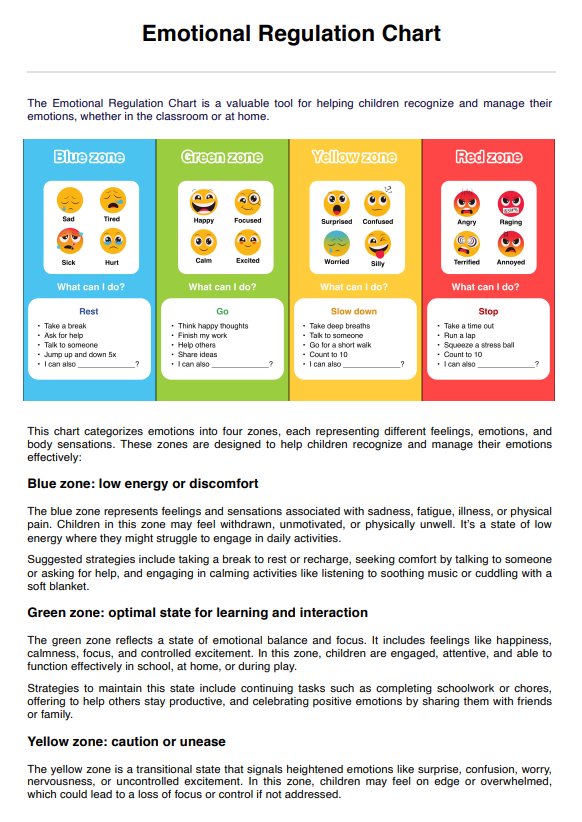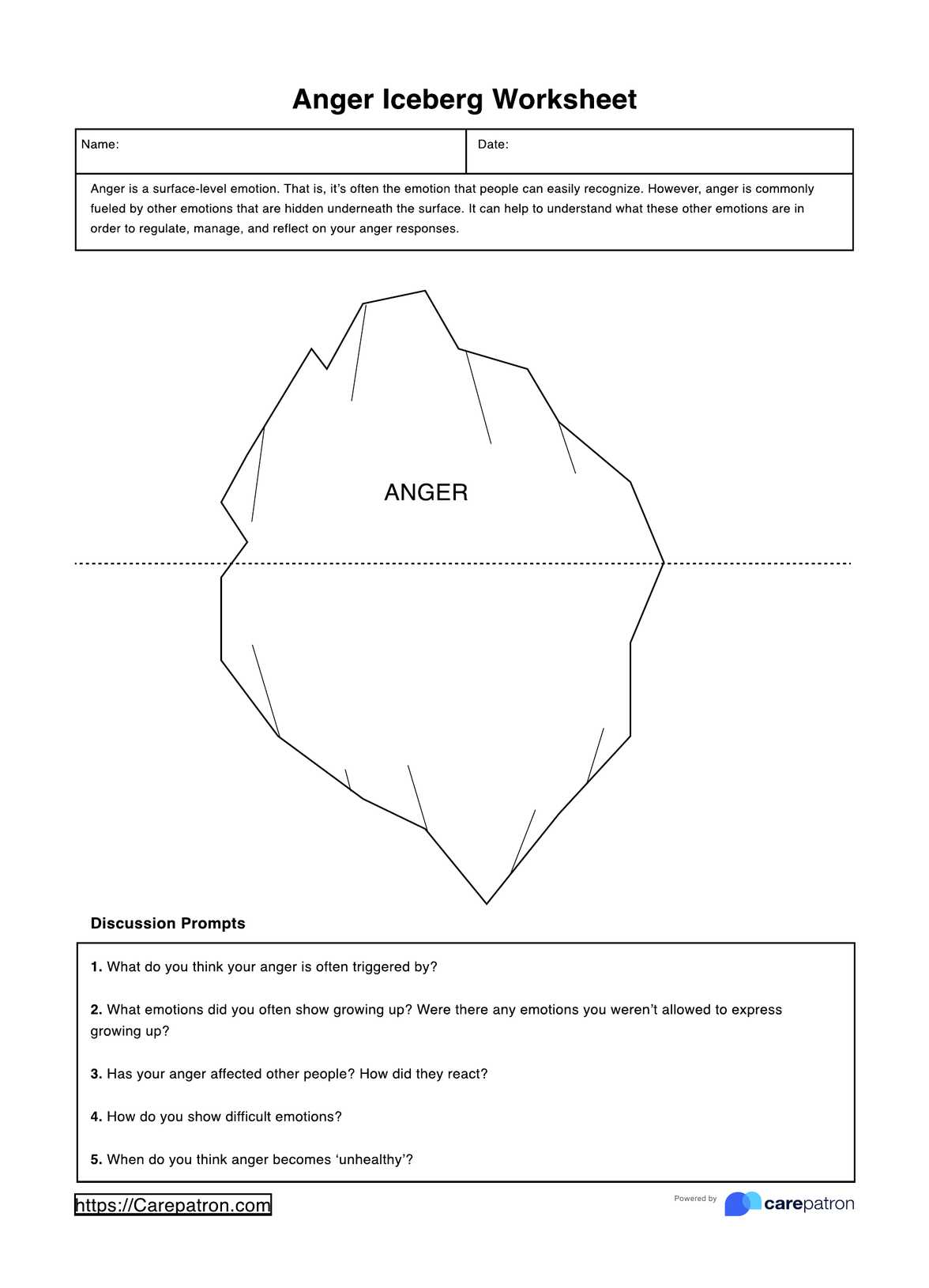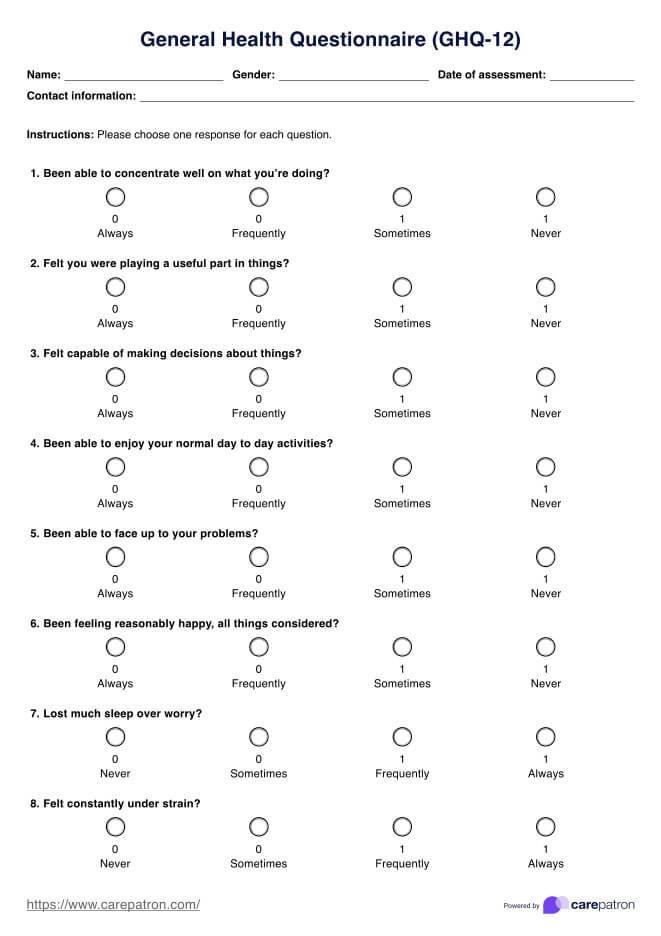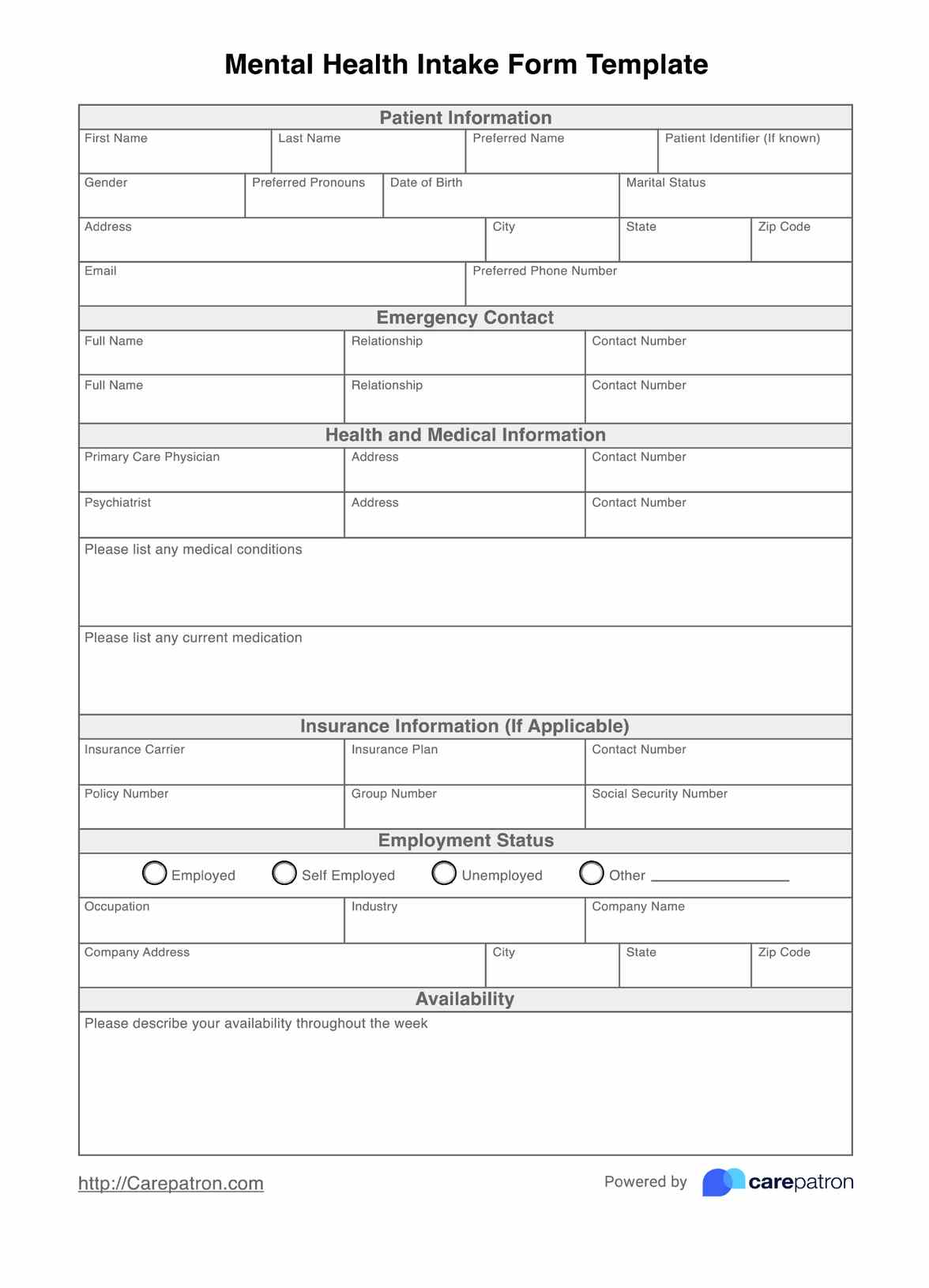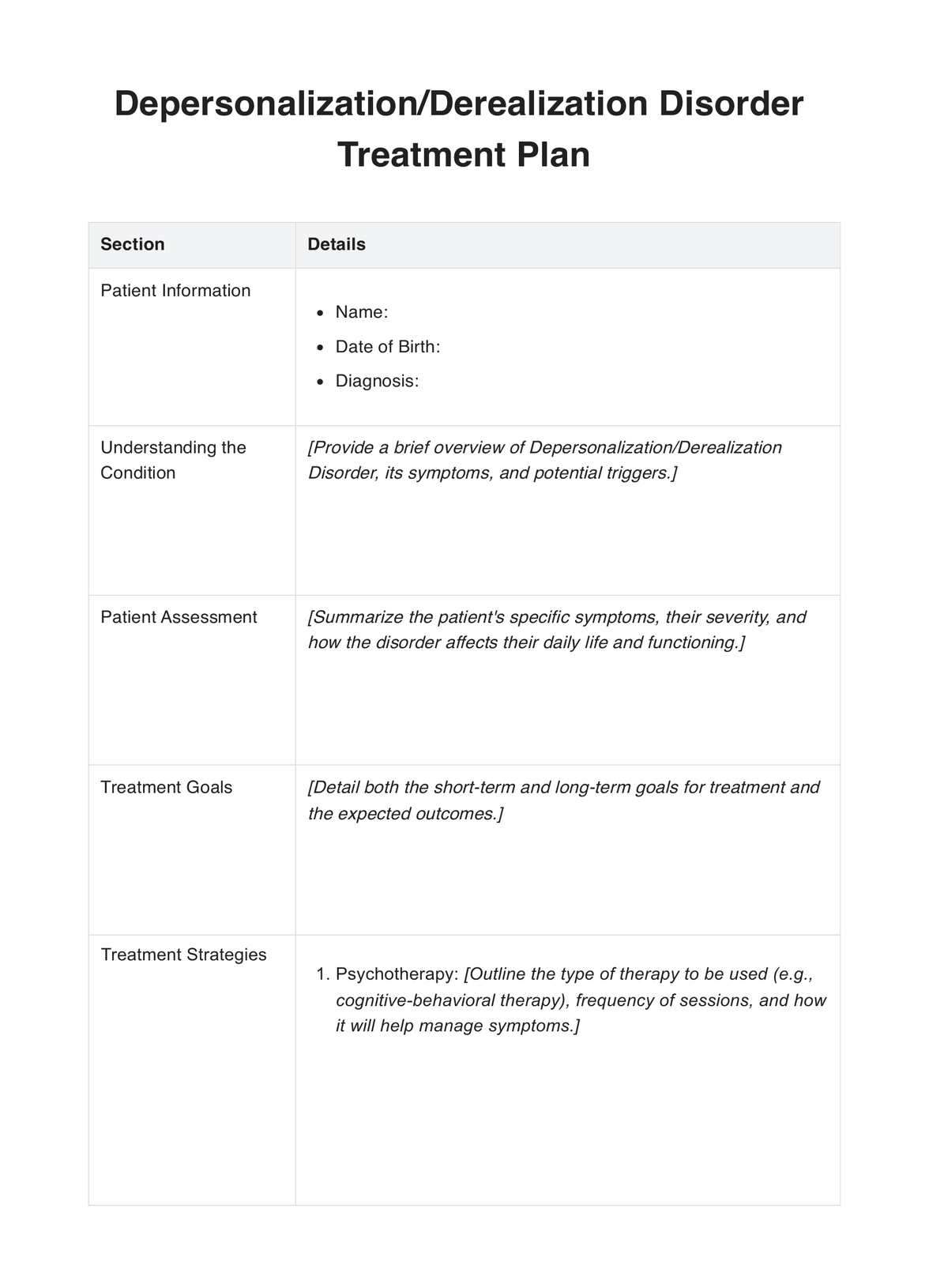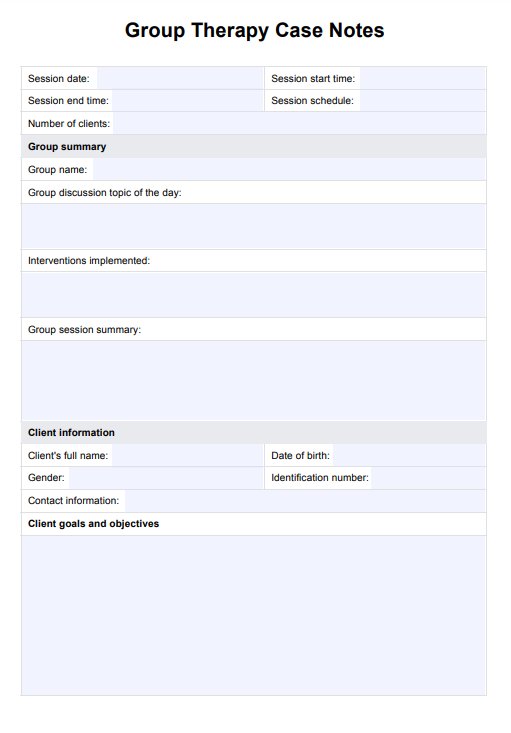Recognizing Stress During Recovery CBT Worksheet
Give your clients a Recognizing Stress During Worksheet to help them identify the symptoms of stress and develop coping strategies to handle it.


What is Cognitive Behavioral Therapy?
CBT, or , is a form of evidence-based that’s psychotherapy widely recognized for focusing on the connection between a person’s behavior, thoughts, and feelings. Though it can be used as a standalone treatment, it can be added to other therapeutic approaches to treat various mental health conditions such as anxiety, eating disorders, depression, substance abuse issues, post-traumatic stress disorder (PTSD), and phobias.
Rooted in the idea that thoughts influence one’s actions, CBT’s goal is to help individuals identify and change negative thought patterns that contribute to their distress and develop realistic, positive thoughts to better adapt or react to situations. These are all achieved by teaching the client CBT techniques like problem-solving, goal-setting, self-monitoring, and more.
After the treatment involving CBT exercises and sessions, the individual is expected to be more aware of their thinking pattern and be more capable of using their equipped skills to shift their negative mindset into a better one for healthier well-being.
Recognizing Stress During Recovery CBT Worksheet Template
Recognizing Stress During Recovery CBT Worksheet Example
How to use the Recognizing Stress During Recovery CBT Worksheet:
Step One: Access and Download the Template
To access and download the digital and printable version of the “Recognizing Stress During Recovery CBT Worksheet,” do either of the following:
- Click the “Download Template” or “Use Template” button
- Search for “Recognizing Stress During Recovery CBT Worksheet” in Carepatron’s template library’s search bar on the website or app
Step Two. Complete the Template
When you think your client can benefit from doing the exercise, give them a copy of the template to answer. If they need clarification or have questions, use the sample template to explain how to answer the sections visually.
Remember to assure your clients that they can take it slow and answer the questions they’re comfortable with, whether bullet points, phrases, or sentences.
Step Three. Discuss the Template
Once they’ve finished, you can discuss the answers they’ve checked or written, especially the last part, where they’re asked to think of coping strategies for stress. It’ll help you know more about the client and what type of approach will be effective or will be more willing to try.
Step Four. Securely Store the Template
The worksheet has sensitive information, so you must store the printed copy in a secure physical location or the digital copy on Carepatron, a HIPAA-compliant EHR. If you store your completed on Carepatron, ensure that only relevant parties have access by limiting viewing access.
You can also use this coping strategies for stress template to enhance your practice by providing clients with structured methods for managing their stress. This sample helps in developing personalized plans to address individual stressors effectively.
When would you use this Recognizing Stress During Recovery CBT Worksheet?
Mental health professionals who are licensed, experienced, and have a CBT certification, such as psychiatrists, psychologists, and therapists, can use the “Recognizing Stress During Recovery CBT Worksheet” when:
- Their client expresses concerns or exhibits symptoms of stress that may impede on their journey to recovery
- The client needs coping strategies to deal with the stress they’re experiencing during their journey to recovery
It’s important to note that even if the template specifies clients in Treatment and Rehabilitation Centers, you can give the worksheet to any client you think will benefit from answering it.
What are the benefits of using this Recognizing Stress During Recovery CBT Worksheet?
Improved Self-Awareness
Unlike other assessments, this worksheet will ask the client to answer independently about the symptoms they experienced. By doing this exercise, the client will consequently improve their self-awareness skills, specifically being more aware of their feelings and discerning if it’s because of stress or a physical illness.
Insight into the Patient’s Condition
With this worksheet, the referring physician will have insight into the effects of stress on the client's journey to recovery and the symptoms leading up to stress. Aside from that, the referring physician, if they ask the client to answer the test once more, can also get insight into the effectiveness of the coping strategies recommended.
Provide Evidence-Based Solutions
The last part of the worksheet will ask the client to think of coping strategies, whether independently or with friends and mentors. Instead of trying general coping strategies, the client can try recommendations based on these answers with the help of those who can access the worksheet answers.
Digitally Accessible
Our “Recognizing Stress During Recovery CBT Worksheet” is free and can be accessed digitally, customized, and completed as a digital file on Carepatron and PDF editor on any gadget you have access to. Furthermore, if you store it on Carepatron, you can limit viewing access to relevant parties only.
Commonly asked questions
It can take at least 30 minutes to complete the “Recognizing Stress During Recovery CBT Worksheet.”
It can help clients identify when to use their coping strategies based on their stress symptoms. In addition, it can help the referring physician know more about the client.
It’s best used when clients exhibit stress symptoms that may negatively affect their recovery journey.


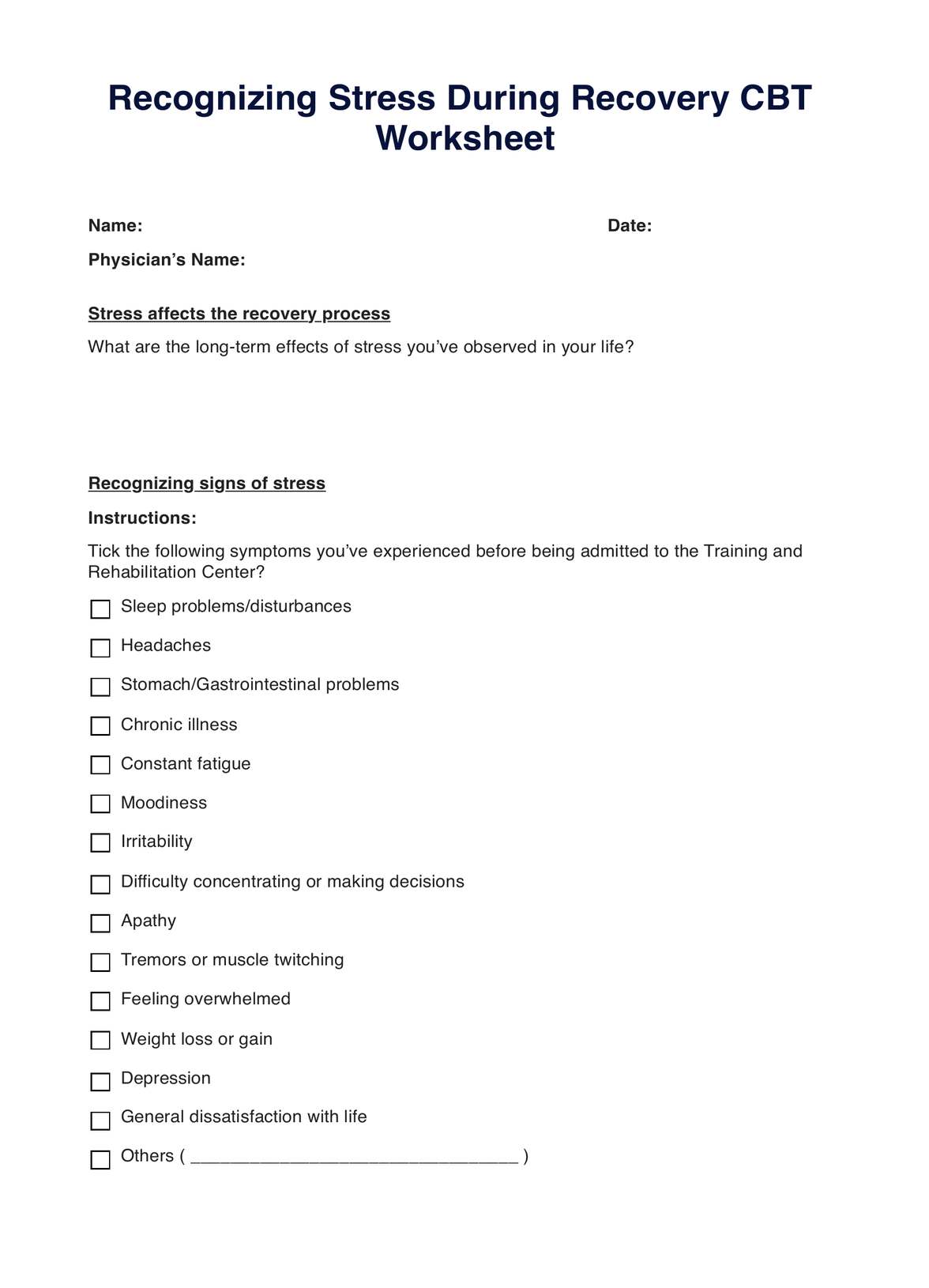
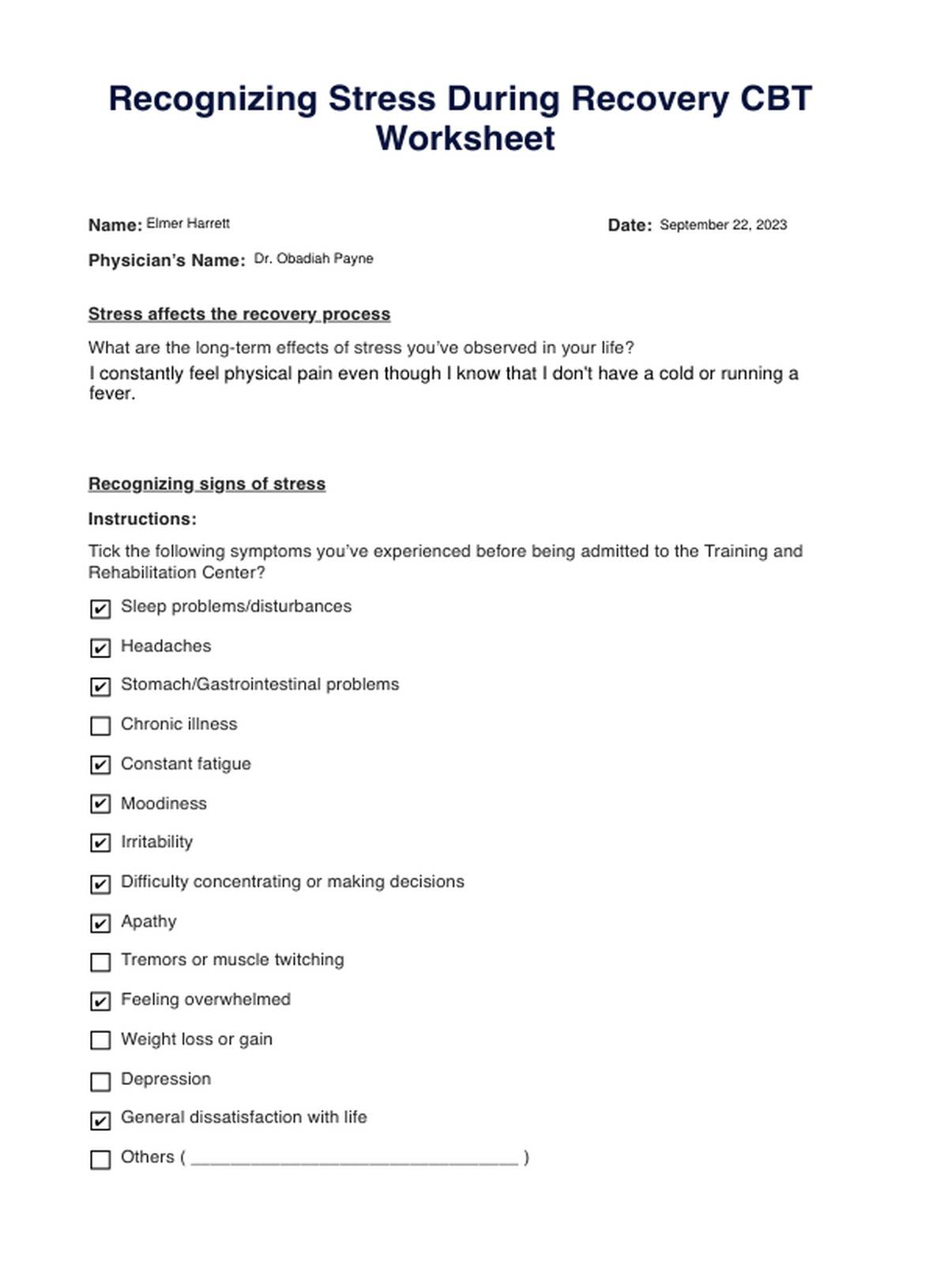














-template.jpg)






